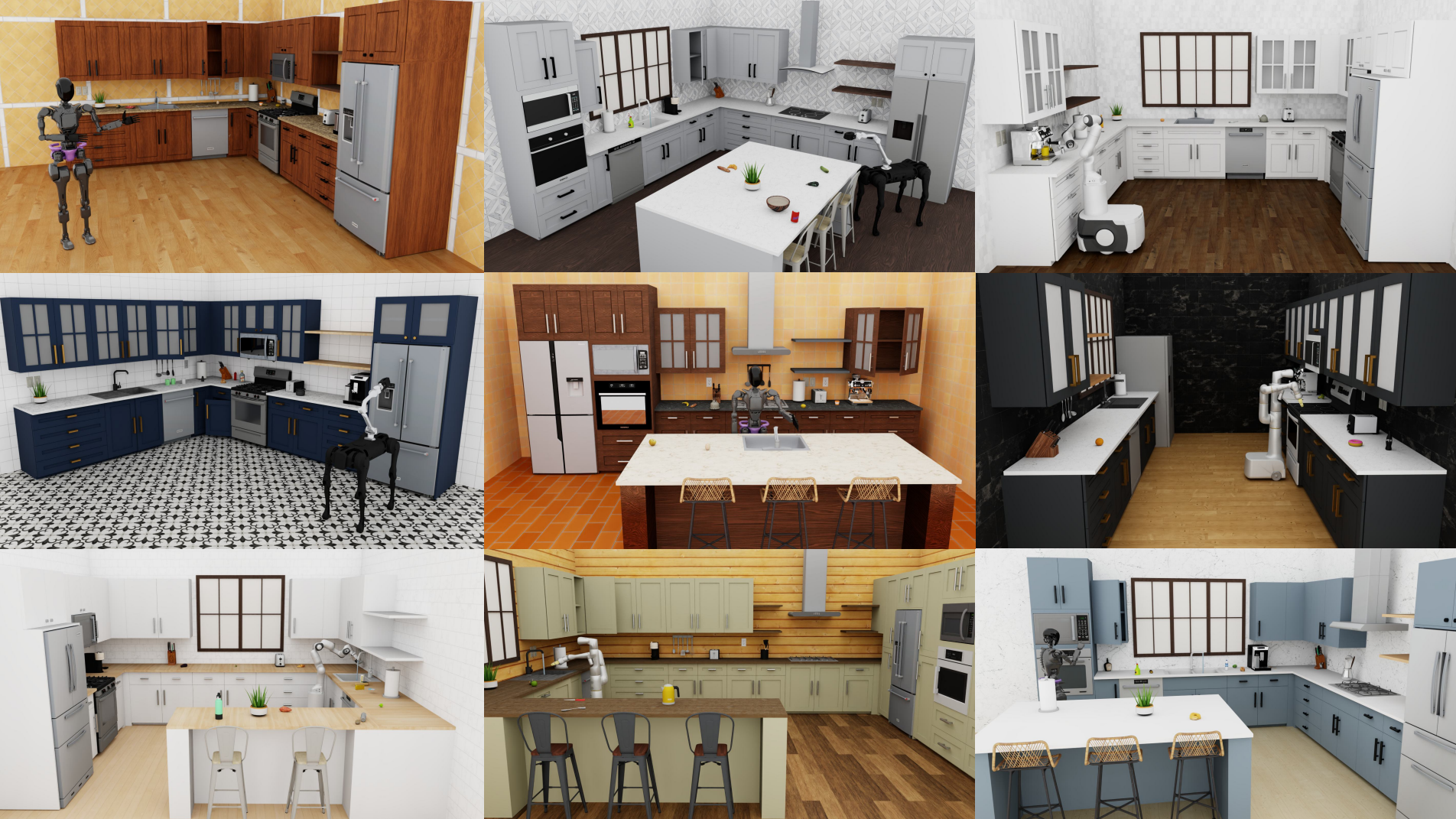RoboCasa is the AI-powered training ground for your future household robot

RoboCasa is a new simulation framework for training robots in everyday environments. It uses AI tools to create a variety of scenes, tasks, and 3D objects.
Researchers at the University of Texas at Austin and Nvidia have introduced RoboCasa, a simulation framework for training household robots in everyday environments. The goal is to generate diverse training data for robots by scaling the simulation to develop adaptive robot models.
RoboCasa builds on the RoboSuite framework, which is optimized for physical realism and high speed, and is based on Deepmind's MuJoCo. RoboCasa extends RoboSuite to support mobile robots, humanoid robots, and quadruped robots with arms.
Video: Nasiriany, Maddukuri, Zhang et al.
Generative AI enables a diverse training environment
The framework initially focuses on kitchen environments. It offers 120 realistic kitchen scenes in ten layouts and twelve styles, from simple to luxurious. Textures for walls, floors, and furniture are created using AI image generators such as Midjourney to increase visual variety.
More than 2,500 high-quality 3D objects in 153 categories, from food to kitchen utensils, have been compiled from 3D model databases and text-to-3D services. There are also dozens of interactive kitchen appliances such as microwaves and stoves.
Video: Nasiriany, Maddukuri, Zhang et al.
The researchers defined 100 representative tasks for kitchen activities. 25 of these are atomic tasks, covering basic skills such as reaching and pressing buttons. The remaining 75 are composite tasks suggested by language models such as GPT-4. They include more complex activities such as cooking and setting the table.
For each task, human users first collected 50 teleoperation demonstrations. The dataset was then expanded to over 100,000 synthetic demonstrations using the MimicGen automated process.
Generated training data also improves real-world robots
Experiments have shown that robot models trained with machine-generated data generalize significantly better than those trained only with human demonstrations. The success rate increased with the amount of data generated.
Training with simulated data also helped in the real world: In a real kitchen, robots trained with RoboCasa data had a 79 % higher success rate than those trained only with real data.
The researchers see the combination of simulations, generative AI, and robotic data sets as a promising approach to training basic models for robotics.
The quality of the generated data will be further improved in the future. An extension to other environments and tasks is also planned.
More information and examples can be found on the RoboCasa project page.
AI News Without the Hype – Curated by Humans
As a THE DECODER subscriber, you get ad-free reading, our weekly AI newsletter, the exclusive "AI Radar" Frontier Report 6× per year, access to comments, and our complete archive.
Subscribe nowAI news without the hype
Curated by humans.
- Over 20 percent launch discount.
- Read without distractions – no Google ads.
- Access to comments and community discussions.
- Weekly AI newsletter.
- 6 times a year: “AI Radar” – deep dives on key AI topics.
- Up to 25 % off on KI Pro online events.
- Access to our full ten-year archive.
- Get the latest AI news from The Decoder.